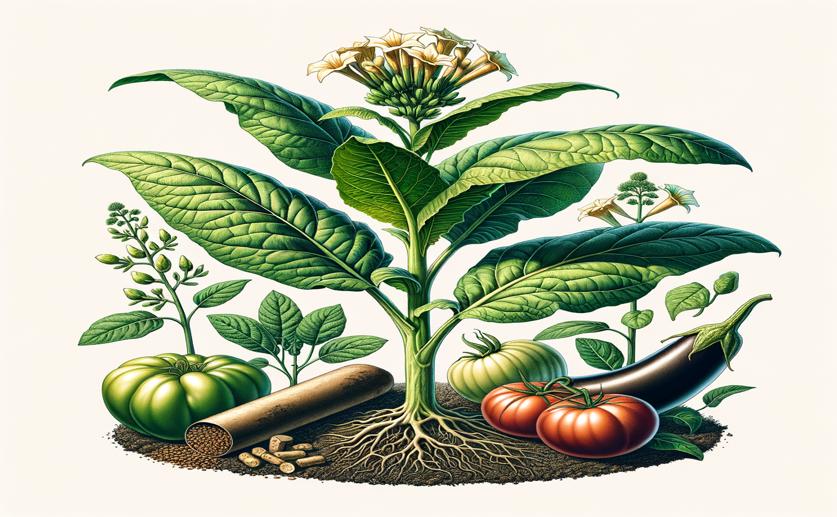
How Tobacco Plant Genes Have Expanded in the Nightshade Family
Jim Crocker
22nd May, 2024

Image Source: Natural Science News, 2024
Key Findings
- Researchers at Shandong Agricultural University identified 45 TALE genes in tobacco, divided into BELL and KNOX subfamilies
- These genes show diverse expression patterns across different plant tissues and stages, indicating their roles in plant development
- The study found that many of these genes respond to various stress conditions, highlighting their importance in plant adaptation and survival
References
Main Study
1) Expression patterns and evidence of the expansion of Nicotiana tabacum L. TALE genes in the Solanaceae family
Published 21st May, 2024
https://doi.org/10.1007/s10722-024-02005-3
Related Studies
2) The Arabidopsis BELL1 and KNOX TALE homeodomain proteins interact through a domain conserved between plants and animals.
Journal: The Plant cell, Issue: Vol 13, Issue 11, Nov 2001
3) The Rise and Rise of Nicotiana benthamiana: A Plant for All Reasons.



 20th May, 2024 | Jenn Hoskins
20th May, 2024 | Jenn Hoskins